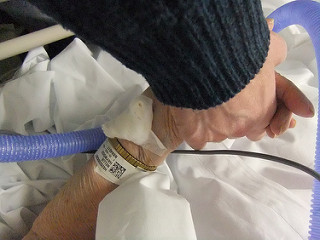 There is no such thing as “good” fraud, but on the hierarchy of Medicare fraud from bad to worst, hospice fraud is arguably one of the most despicable types. Medicare Part A covers hospice care for patients who are “terminally ill,” or have a life expectancy of six months or less. If you believe you have witnessed hospice fraud, make it your duty to report the fraud and honor an individual’s last moments in this world. The whistleblower attorneys at Willoughby Brod are experienced at helping whistleblowers bring their claims forward and protecting them in the process. Contact us today for a free consultation and to learn how we can help.
There is no such thing as “good” fraud, but on the hierarchy of Medicare fraud from bad to worst, hospice fraud is arguably one of the most despicable types. Medicare Part A covers hospice care for patients who are “terminally ill,” or have a life expectancy of six months or less. If you believe you have witnessed hospice fraud, make it your duty to report the fraud and honor an individual’s last moments in this world. The whistleblower attorneys at Willoughby Brod are experienced at helping whistleblowers bring their claims forward and protecting them in the process. Contact us today for a free consultation and to learn how we can help.
What Does Medicare Provide by Way of Hospice Care?
As mentioned above, Medicare Part A covers hospice care for patients who are deemed by a medical professional to be terminally ill, which is defined as having a life expectancy of six months or less. Medicare covers only hospice care for terminally ill patients and not any curative treatments, although hospice patients can continue to receive curative care coverage for conditions unrelated to the cause of their terminal illness.
 Healthcare Fraud Lawyer Blog
Healthcare Fraud Lawyer Blog




